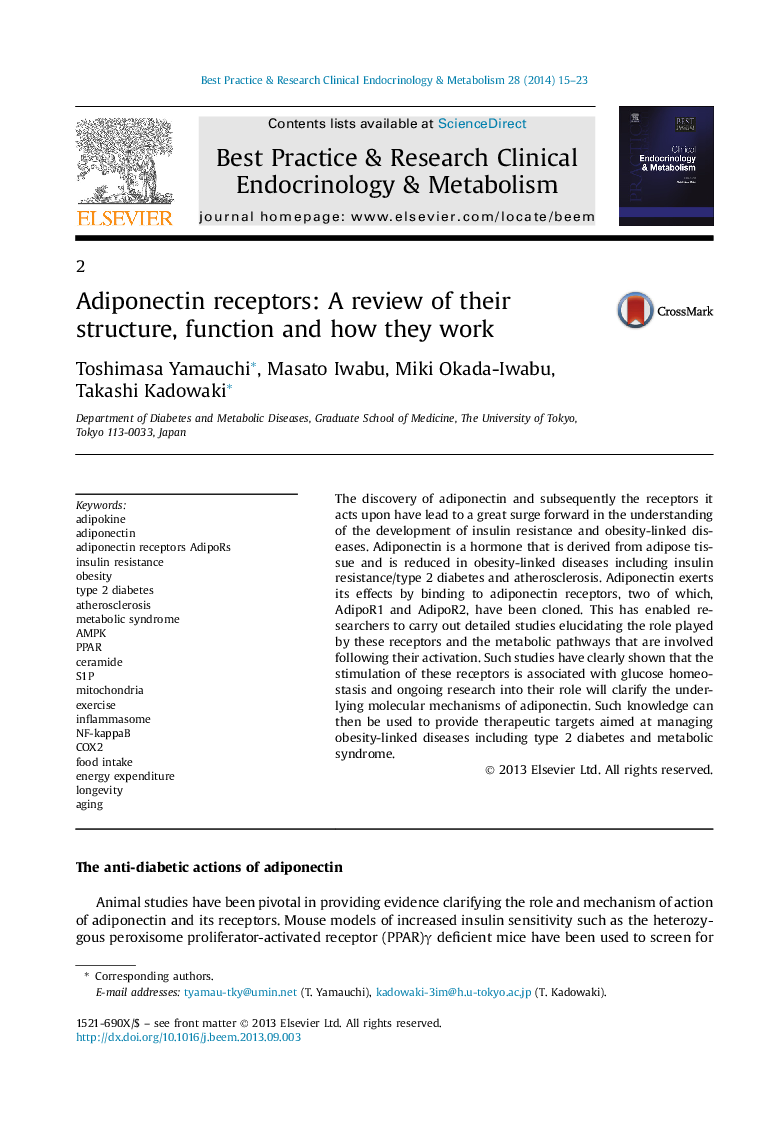| Article ID | Journal | Published Year | Pages | File Type |
|---|---|---|---|---|
| 2791683 | Best Practice & Research Clinical Endocrinology & Metabolism | 2014 | 9 Pages |
The discovery of adiponectin and subsequently the receptors it acts upon have lead to a great surge forward in the understanding of the development of insulin resistance and obesity-linked diseases. Adiponectin is a hormone that is derived from adipose tissue and is reduced in obesity-linked diseases including insulin resistance/type 2 diabetes and atherosclerosis. Adiponectin exerts its effects by binding to adiponectin receptors, two of which, AdipoR1 and AdipoR2, have been cloned. This has enabled researchers to carry out detailed studies elucidating the role played by these receptors and the metabolic pathways that are involved following their activation. Such studies have clearly shown that the stimulation of these receptors is associated with glucose homeostasis and ongoing research into their role will clarify the underlying molecular mechanisms of adiponectin. Such knowledge can then be used to provide therapeutic targets aimed at managing obesity-linked diseases including type 2 diabetes and metabolic syndrome.
